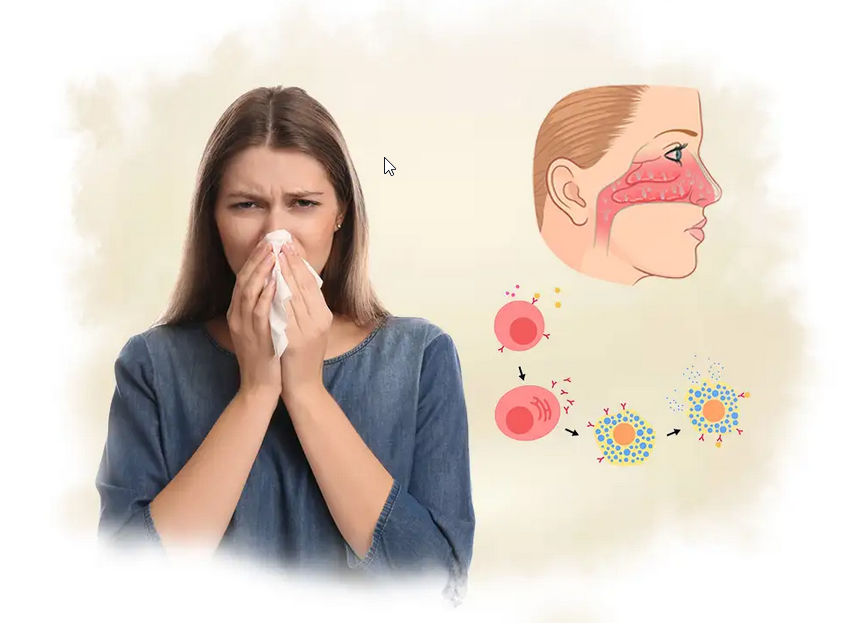Allergic rhinitis, often referred to as hay fever, is a prevalent allergic condition affecting a significant portion of the population. It manifests primarily through symptoms in the nasal passages and sinuses, triggered by airborne allergens. Understanding these symptoms is crucial for effective management and improving the overall quality of life for those afflicted.
1. Sneezing:
One of the most noticeable symptoms of allergic rhinitis is persistent sneezing. The body's immune response attempts to expel allergens, leading to bouts of sneezing, especially upon exposure to triggering substances.
2. Runny or Stuffy Nose:
Individuals with allergic rhinitis often experience a runny or congested nose. This occurs due to the inflammation and increased mucus production in the nasal passages in response to allergen exposure.
3. Itching and Irritation:
Itching in the nose, throat, ears, and eyes is a common symptom of allergic rhinitis. This itchiness is a result of the immune system's response to allergens, aiming to eliminate the foreign substances.
4. Watery Eyes:
Allergens can lead to watery, red, and itchy eyes, a condition known as allergic conjunctivitis. It can be particularly bothersome and affect daily activities.
5. Fatigue:
The constant battle against allergens and disrupted sleep patterns due to symptoms like nasal congestion can result in fatigue and reduced energy levels, impacting an individual's productivity and well-being.
6. Postnasal Drip:
Excess mucus production can cause a sensation of mucus dripping down the back of the throat, resulting in irritation or a persistent cough, leading to discomfort and a need for relief.
7. Loss of Smell or Taste:
In severe cases, allergic rhinitis can temporarily impair the sense of smell or taste, affecting an individual's sensory experience and appetite.
8. Headache:
Sinus pressure and congestion due to allergic rhinitis can trigger headaches, adding to the discomfort and negatively impacting an individual's overall well-being.
Understanding and recognizing these key symptoms of allergic rhinitis is crucial for effective management. Lifestyle modifications, such as minimizing exposure to triggers, using medications, and seeking allergen immunotherapy, can help alleviate symptoms and improve the quality of life for those affected. It's essential to consult a healthcare professional for a tailored treatment plan based on individual needs and circumstances. By doing so, individuals can gain better control over their allergic rhinitis symptoms and enjoy a more fulfilling life, even in the presence of common allergens

 Explore the distinct symptoms of allergic rhinitis, including sneezing, nasal congestion, itching, and more. We are exploring to identify and manage these symptoms for a better quality of life amidst allergen exposure.
Explore the distinct symptoms of allergic rhinitis, including sneezing, nasal congestion, itching, and more. We are exploring to identify and manage these symptoms for a better quality of life amidst allergen exposure.





.jpeg)






.jpeg)







.jpeg)




.jpeg)
.jpeg)








